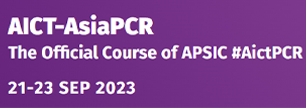


- NEWS
-
-
Scientific LibraryAcute Coronary Syndrom ASCVD Prevention Bifurcation Stenting Cardio-Oncology Congestive Heart Failure DAPT Duration Drug Coated Balloon Fractional Flow ReserveCases VideosE-LearningIndustry Insights
- LIVE REVIEW
-
 Article Link
Article Link

Clinician’s Guide to Reducing Inflammation to Reduce Atherothrombotic Risk
PM Ridker
KEYWORDS
atherosclerosis; canakinumab; CANTOS; inflammation; interleukin-1
Life-threatening cardiovascular events occur despite control of conventional risk factors. Inflammation, as measured by high-sensitivity C-reactive protein (hsCRP) concentration, is associated with future vascular events in both primary and secondary prevention, independent of usual risk markers. Statins are powerful lipid-lowering agents with clinically relevant anti-inflammatory effects. Recent data support targeting the interleukin (IL)-1-to-IL-6-to-CRP signaling pathway as an adjunctive method for atheroprotection. The CANTOS (Canakinumab Anti-inflammatory Thrombosis Outcomes Study) trial showed that reducing inflammation through IL-1β inhibition significantly reduced vascular risk, beyond that achievable with lipid lowering. CANTOS further demonstrated a 31% reduction in cardiovascular mortality and all-cause mortality among patients treated with canakinumab who achieved the largest reductions in hsCRP, as well as efficacy in high-risk patients with chronic kidney disease and diabetes. This review outlines the clinical implications of CANTOS for patients with “residual inflammatory risk,” the potential benefits and risks associated with anti-inflammatory therapy, and the importance of CANTOS for future drug development.




















